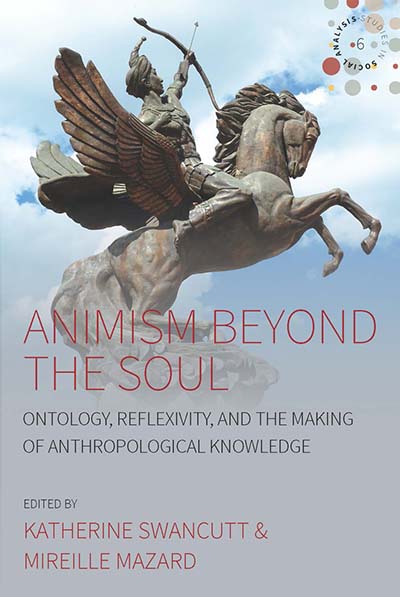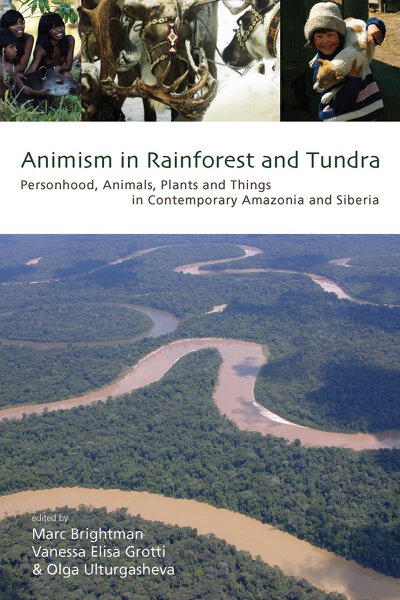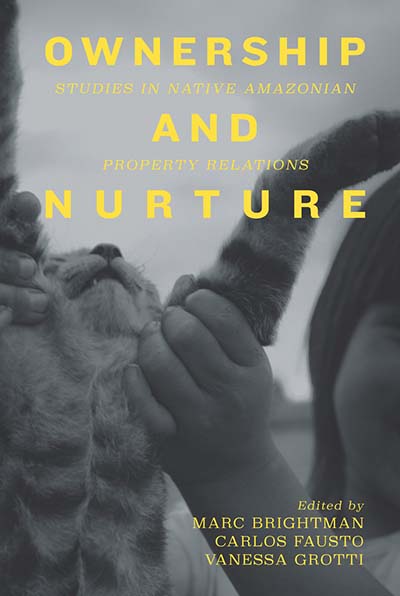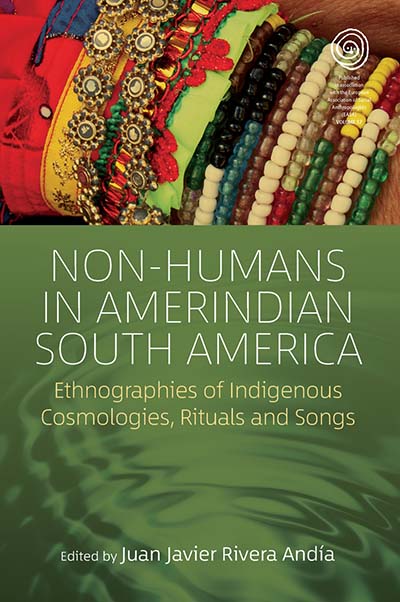
Series
Volume 6
Studies in Social Analysis
See Related
Anthropology JournalsEmail Newsletters
Sign up for our email newsletters to get customized updates on new Berghahn publications.
Animism beyond the Soul
Ontology, Reflexivity, and the Making of Anthropological Knowledge
Edited by Katherine Swancutt and Mireille Mazard
160 pages, bibliog., index
ISBN 978-1-78533-865-6 $120.00/£92.00 / Hb / Published (April 2018)
ISBN 978-1-78533-866-3 $29.95/£23.95 / Pb / Published (April 2018)
eISBN 978-1-83695-861-1 eBook
Reviews
“The authors in this collection have cooperated in making a bold and meaningful attempt to provide in-depth research on animism through their honest awareness of the significance of reflexivity. They have met the goal they have set themselves of illustrating the different understandings of the spiritual and invisible aspects of personhood they describe.” • JASO
“In a very short space (138 pages of text) with only six essays, Animism Beyond the Soul makes an outsized contribution to our understanding of animism and to the more general issue of the construction of ethnographic knowledge. Stressing the danger of imposing one religion’s language on other cultures, as well as the inevitable multiple reflexivities of cultural encounter, the contributors open our eyes to a much wider vista of soul and person concepts and point to a rich literature that challenges our narrow assumptions about exotic and familiar religions and ontologies.” • Reading Religion
Description
How might we envision animism through the lens of the ‘anthropology of anthropology’? The contributors to this volume offer compelling case studies that demonstrate how indigenous animistic practices, concepts, traditions, and ontologies are co-authored in highly reflexive ways by anthropologists and their interlocutors. They explore how native epistemologies, which inform anthropological notions during fieldwork, underpin the dialogues between researchers and their participants. In doing so, the contributors reveal ways in which indigenous thinkers might be influenced by anthropological concepts of the soul and, equally, how they might subtly or dramatically then transform those same concepts within anthropological theory.
Katherine Swancutt is a Senior Lecturer in the Anthropology of Religion in the Department of Theology and Religious Studies, King’s College London. She is the author of Fortune and the Cursed: The Sliding Scale of Time in Mongolian Divination (Berghahn Books, 2012). She has conducted fieldwork on shamanic and animistic religions across Inner Asia for two decades, with a particular focus on Southwest China and Mongolia. Her newest work is on the anthropology of dreams.
Mireille Mazard is an Independent Researcher who recently completed a postdoctoral fellow at the Max Planck Institute for Religious and Ethnic Diversity. Her area of interest are ethnopolitics and identity among the Nusu of Southwest China. She is currently writing a monograph about Nusu religious and political transformations, which explores their engagement with Christian and Communist ideologies in creating new ontological frameworks for experiencing the world.




